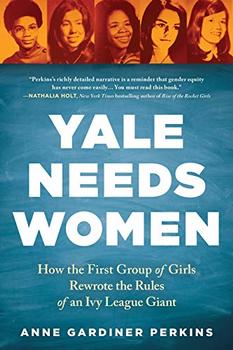Summary | Excerpt | Reviews | Beyond the book | Read-Alikes | Genres & Themes | Author Bio

The Inspiring Story of the Team That Barnstormed Its Way to Basketball Glory
by Lydia ReederThe Boys in the Boat meets A League of Their Own in this true story of a Depression-era championship women's team.
In the early 1930s, during the worst drought and financial depression in American history, Sam Babb began to dream. Like so many others, this charismatic Midwestern basketball coach wanted a reason to have hope. Traveling from farm to farm near the tiny Oklahoma college where he coached, Babb recruited talented, hardworking young women and offered them a chance at a better life: a free college education in exchange for playing on his basketball team, the Cardinals.
Despite their fears of leaving home and the sacrifices that their families would face, the women joined the team. And as Babb coached the Cardinals, something extraordinary happened. These remarkable athletes found a passion for the game and a heartfelt loyalty to one another and their coach--and they began to win.
Combining exhilarating sports writing and exceptional storytelling, Dust Bowl Girls takes readers on the Cardinals' intense, improbable journey all the way to an epic showdown with the prevailing national champions, helmed by the legendary Babe Didrikson. Lydia Reeder captures a moment in history when female athletes faced intense scrutiny from influential figures in politics, education, and medicine who denounced women's sports as unhealthy and unladylike. At a time when a struggling nation was hungry for inspiration, this unlikely group of trailblazers achieved much more than a championship season.
I’m giving Lydia Reeder's Dust Bowl Girls, about a 1930s women's amateur basketball team and their gristly coach, high praise. From me – a person who closes her eyes and ducks when a ball is thrown to her – this is significant indeed. But I was immediately taken by Coach Sam Babb, Reeder's distant relative, who devoted his life to women's basketball and to developing a trophy winning women's basketball team during the early years of the Great Depression...continued
Full Review
(755 words)
This review is available to non-members for a limited time. For full access,
become a member today.
(Reviewed by Donna Chavez).
 In Dust Bowl Girls, Lydia Reeder notes that many, if not all, of the young women who lived on their families' Oklahoma farms wore dresses made from flour or feed sacks. At the time, before the ready availability of store bought or bakery products, farm women bought their flour in sacks of 25-100 pounds.
In Dust Bowl Girls, Lydia Reeder notes that many, if not all, of the young women who lived on their families' Oklahoma farms wore dresses made from flour or feed sacks. At the time, before the ready availability of store bought or bakery products, farm women bought their flour in sacks of 25-100 pounds.  Feed came in hundred-pound sacks. These sacks were commonly made of cotton. So when funds for clothing became tight, thrifty and inventive homemakers used everything at hand, including the fabric left empty after the flour or feed had been used up. They began cutting the sacks into patterns for clothing, including dresses.
Feed came in hundred-pound sacks. These sacks were commonly made of cotton. So when funds for clothing became tight, thrifty and inventive homemakers used everything at hand, including the fabric left empty after the flour or feed had been used up. They began cutting the sacks into patterns for clothing, including dresses.
 After the manufacturers learned of this creative recycling of their sack, they began including instructions for...
After the manufacturers learned of this creative recycling of their sack, they began including instructions for...
This "beyond the book" feature is available to non-members for a limited time. Join today for full access.

If you liked Dust Bowl Girls, try these:

by Karen Russell
Published 2025
From Pulitzer finalist, MacArthur Fellowship recipient, and bestselling author of Swamplandia! and Vampires in the Lemon Grove Karen Russell: a gripping dust bowl epic about five characters whose fates become entangled after a storm ravages their small Nebraskan town.

by Anne Gardiner Perkins
Published 2021
"If Yale was going to keep its standing as one of the top two or three colleges in the nation, the availability of women was an amenity it could no longer do without."
If you want to build a ship, don't drum up people... but rather teach them to long for the endless immensity of the...
Click Here to find out who said this, as well as discovering other famous literary quotes!